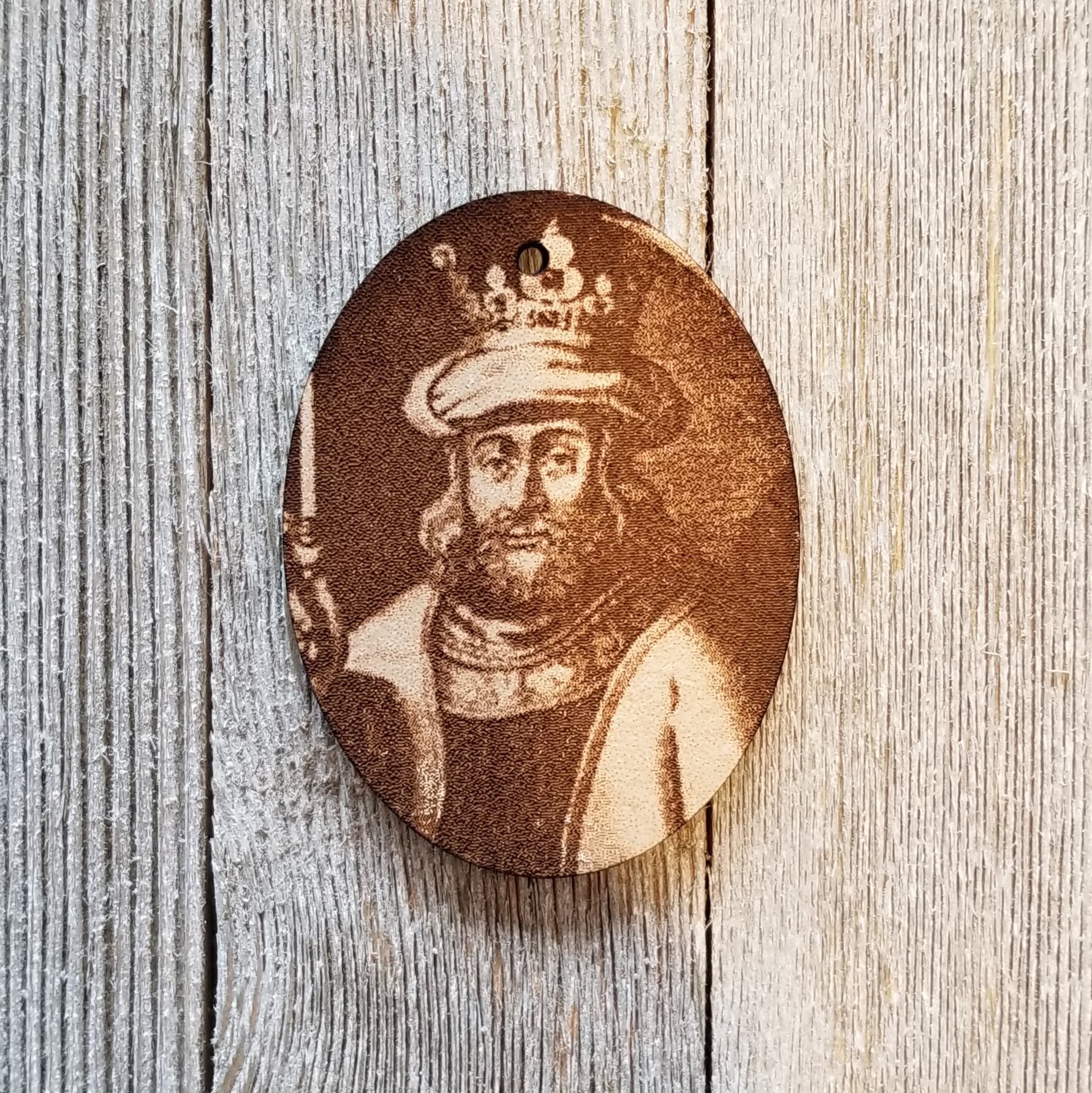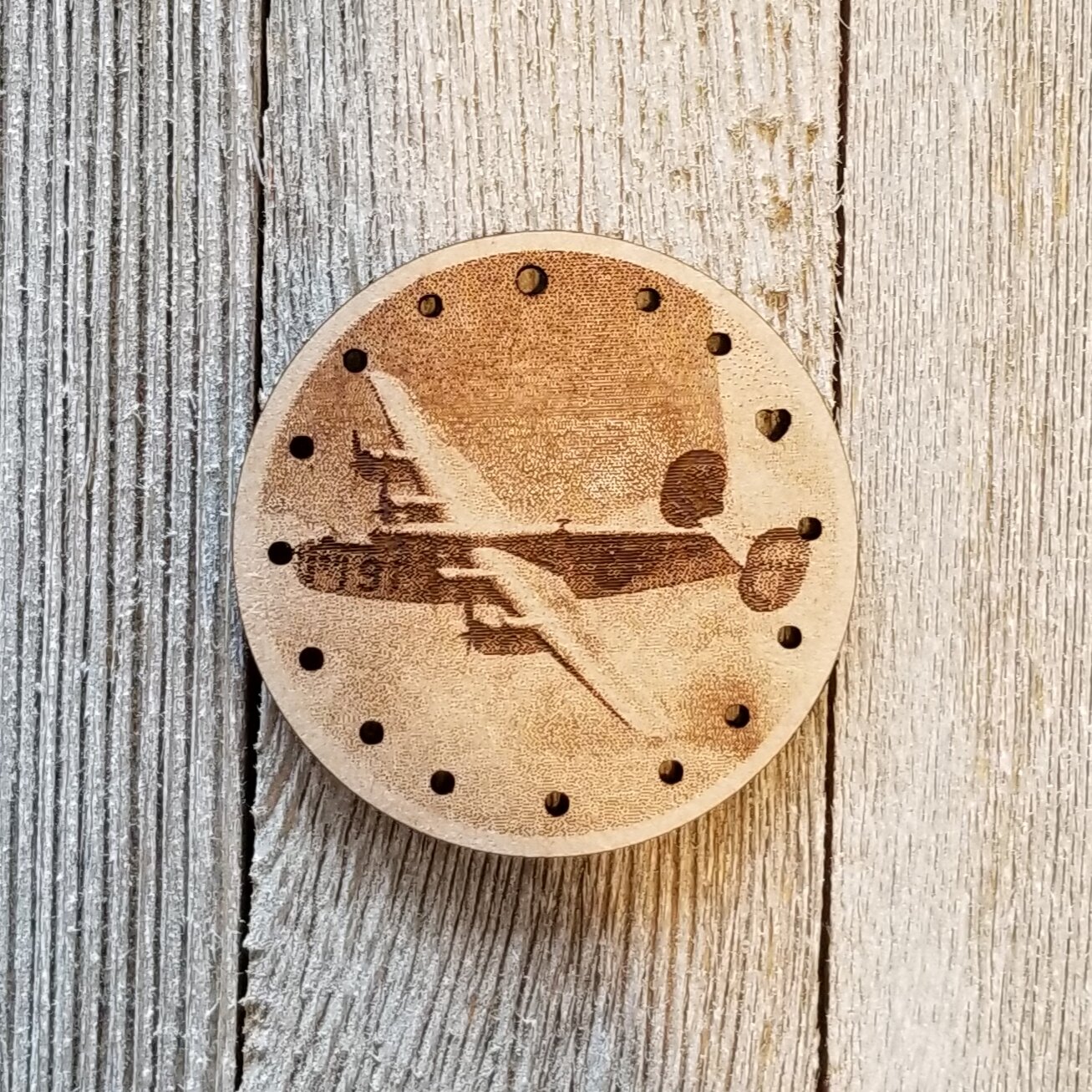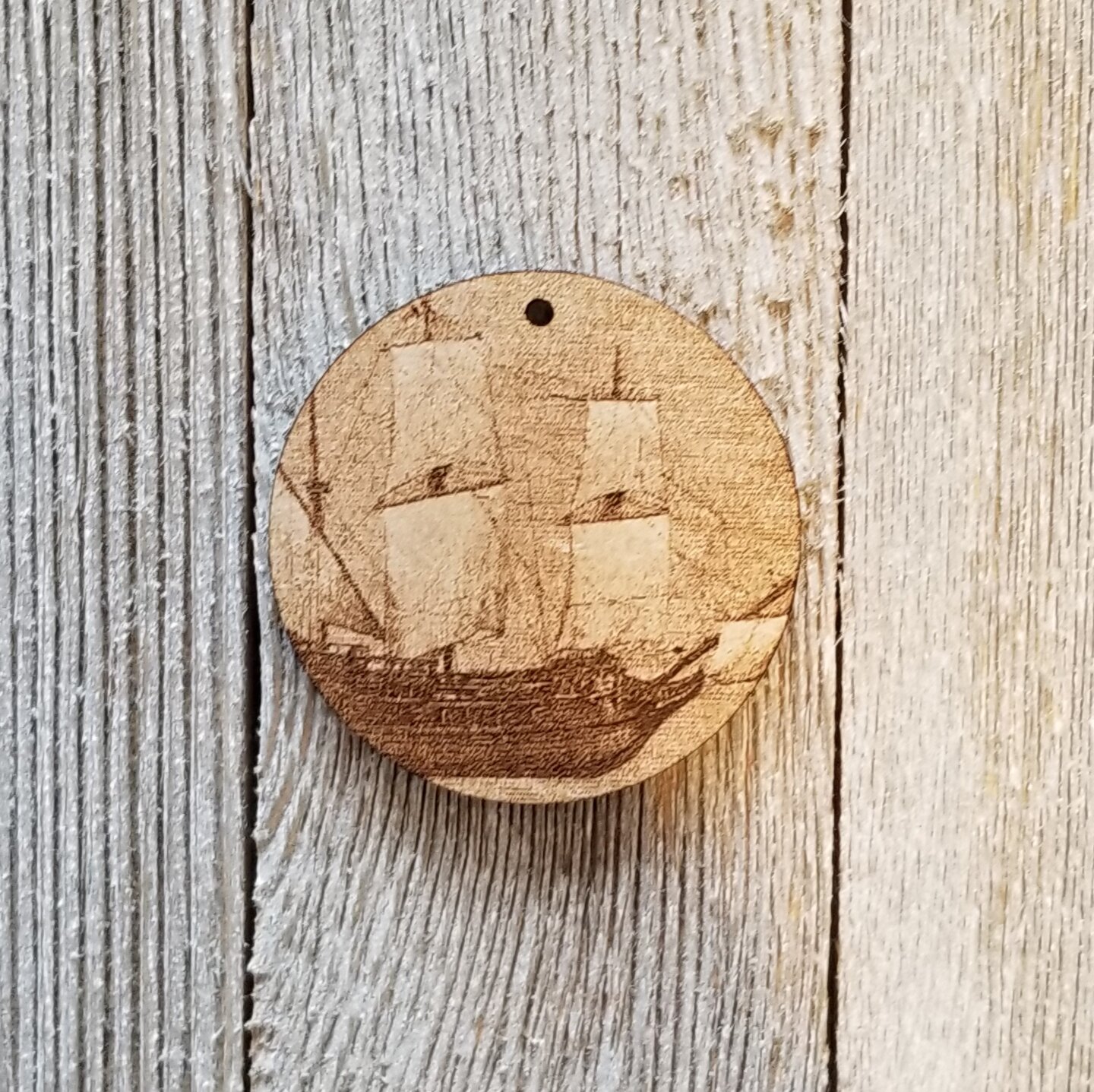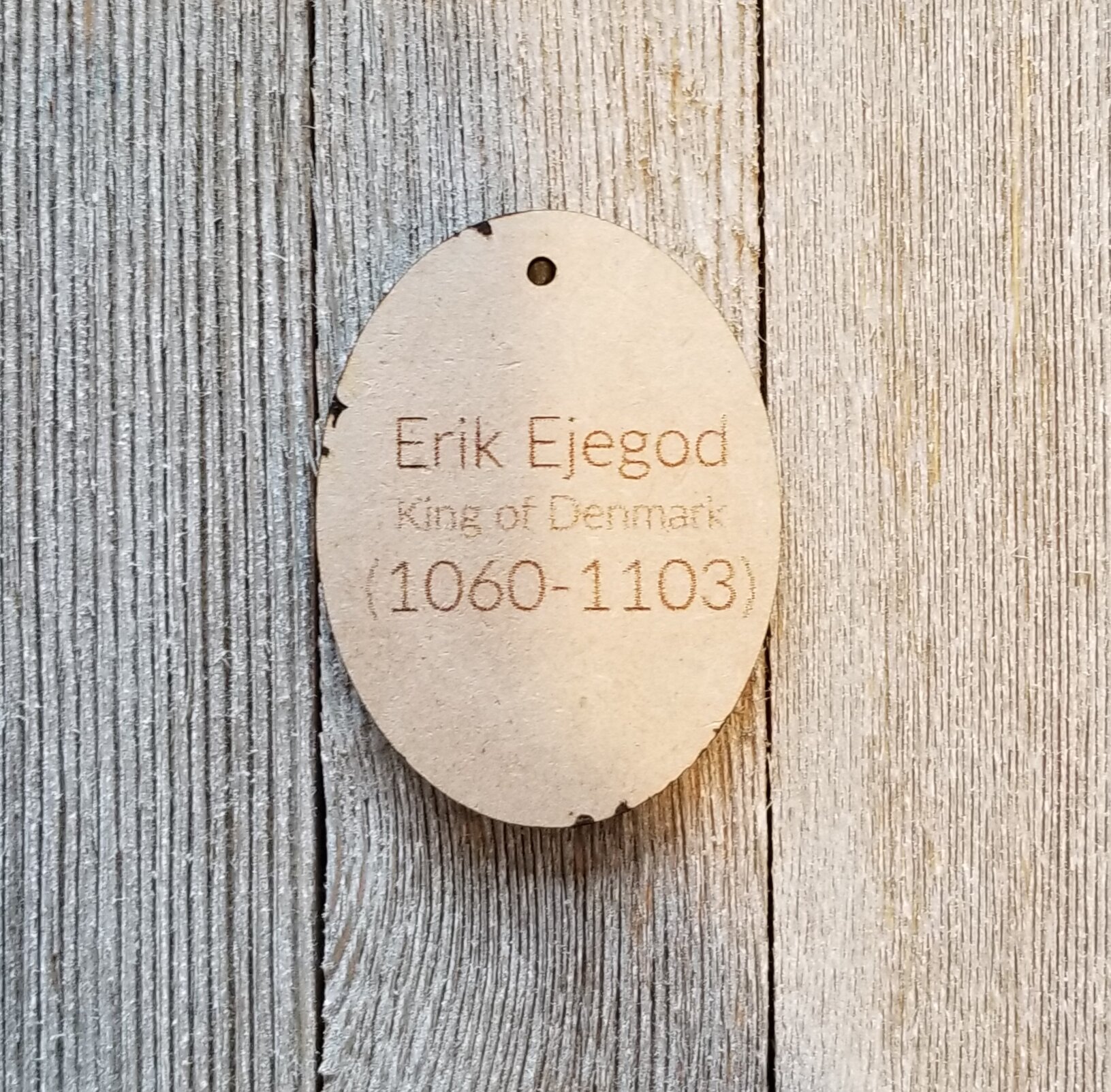E.6 Traditions
Episode 6 was recorded on my phone because my internet was down so please excuse the poor audio quality. I didn’t mention any products this episode but I did mention two family history websites:
As well as a project I am doing this Christmas that I am VERY excited about!
As a way of trying to make this Christmas a Family Christmas, I am turning our Christmas tree into a family tree with ornaments celebrating our ancestors. Once a week or so we will have a special family devotional where I will tell them stories about their ancestors then together we will hang an ornament upon the tree to remind us about them year after year. I am hoping that as the years go by the ornaments will take over my tree and my kids will have a strong sense of their heritage.
Here are some of the ornaments (and their story highlights) I made this year to give you an idea of what the project looks like. Below is the transcript of the podcast. I’d love to hear what you do for your family traditions too!
Erik Ejegod
1060-1103
King of Denmark also known as Erick Evergood or Eric the first. He was known as a kind and just ruler and was one of the first Christian kings of Denmark. He died on a pilgrimage to Jerusalem.
Evan L. Dastrup
1921-2004
My Children’s great grandfather was a bomber pilot in World War 2 and flew several missions in a B 24 bomber before returning home to have 15 children. He loved his God, his country, and his family with admirable stalwartness. He was truely a good ole boy who loved to work on his farm with his equipment, wrote romantic letters to his future wife while away at war, and worked harder than any man. Here are 15 holes for his children and one for his wife surrounding the type of plane he flew in the great war.
Roger de Kirkpatrick
1276-1357
One of my favorite stories from my family history so far. He was loyal to Robert de Bruce the first king of Scotland after retaking it from England. After Robert stabbed a rival (lord Comyen) who threatened his throne he came out of the church they wer meeting in and said “I think I killed Lord Comyen” to which my ancestor replied “I’ll go make sure” and went inside to finish him off! My family then used that phrase as their family motto for hundreds of years.
William Bradford
1590-1657
He arrived on the Mayflower and served on and off as governor of the Plymouth Colony. He was one of Many, Many lines with early American settlers and at the first Thanksgiving.
Richard Goodricke
1524-1580
He was the high sheriff of Yorkshire and instrumental in the conversion of England from Catholicism to the Church of England. He stripped priests of their lands and power and had to go into hiding for the brief reign of bloody Mary.
On the back, I put their name, dates, and a little note to remind us of their story. (This one has little burn marks on the edges because I didn’t clean out the tray under the board on the laser cutter. Its a learning process)
I’m excited to see how the kids recieve the stories and will post an update with pics of the ornaments on the tree ater our devotional!
Episode Transcript:
Hi everyone! You are listening to Episode 6 “Traditions”. As you can tell from the lack of intro music, with winter weather rolling in and computer issues I’ve been without internet on my computer for a week so the “Inspire not require” interview will have to wait to be edited and posted. I don’t want to leave you hanging though so in theme with the season I decided I’d share some thoughts on tradition.
My favorite story about traditions I the one where a woman was getting ready to put a roast in the oven when she cut the top off. Her husband asked her why she did that and she said, “I guess I don’t know, its tradition, that’s how my mom has always done it.” So, she called her mom and asked her “Why do we cut the top off the roast before putting it in the oven?” her mom said “I do it because every time I watched mom cook a roast she cut the top off and the roast always came out delicious so there must be some trick to it, I’ll ask her” after talking with her mom she learned that she only did it because she saw her mom do it. So, they all went over to the retirement home and asked the matriarch why cutting the top of the roast off made it so delicious to which the great-grandmother said “You silly children. I cut the top off the roast because ovens were smaller then and it wouldn’t fit in the oven if I didn’t”.
Sometimes traditions are outdated or seemingly silly. So why do we persist? What is the power of tradition?
I think of tradition a lot like a religious ritual. It’s not the necessarily physical act that you are doing but the reason behind it. Just like rituals are symbols of spiritual things traditions are in memory of your family heritage. They are a living family history.
Tradition ties kids to their cultural heritage. A while ago I posted a pie chart of family heritage on a family group showing we are roughly 50% Scandinavian, 40% United Kingdom and 10% other western and central European. (When I followed our lines back to the first immigrants.) My brother looked at the chart then said, “So what you’re saying is that we are whiter than most white people”. Following our lines, we are also as American as they get with ancestors going back to William Bradford on the Mayflower.
Often when you hear “Cultural heritage” it conjures this image of a little old grandma from the old country speaking in her native tongue cooking ethnic food and telling stories of her childhood in a rural area. Though this isn’t the reality for a lot of us.
My grandmas say “mounin” instead of “mountain”, have a tradition of mapping stores for Black Friday shopping, and making cookies from store-bought dough on the first day of school each year, and tell stories of growing up in small towns in in Utah riding on boats their dad fixed up and sipping soda at soda shops when they could afford it. We don’t have an immediate connection to other countries or exotic cultures. Our culture is basically the one we are surrounded by daily.
I’d love to have an heirloom, secret family recipes or stories of our heritage we’ve heard hundreds of times to include with our holiday traditions, but we don’t really have those either.
As my children study geography and we travel the world in our mind through folktales and traditions of others. I felt a sense of loss for my cultural identity as a vanilla white suburban American family.
Who am I? What do I value and why? How do we celebrate? Where do we come from? As humans, we can’t help but ask these questions at some point in our lives. I believe the answer is two-fold.
The first is deciding what you want your family culture to be. What do you want as your legacy? Any generation cans start a tradition or change the trajectory of a family line. Long ago my son’s ancestors were kings of Denmark. Until one of them stepped in for his father while he was away on a pilgrimage to Jerusalem and did such a terrible job, they didn’t let him take over as king when his dad died. His choices made it so his posterity was no longer royal. On a more positive note, there are countless stories of families that overcame a history of abuse or poverty because one person had the courage to change. Because my ancestors had the courage to pioneer across the country and settle the west my family is from wide-open spaces and apricot trees. Their choices changed the lives of all those that came after them.
We have so much power in how our children will see the world and can create the lively vibrant traditions we crave. With our intention, we can change the course of the coming generations. My husband’s family has a tradition of work and my family has a tradition of loyalty. Both values are reflected in how we raise our kids. Someone’s dedication to these values years ago has affected and will continue to affect generations.
I am excited to talk more about creating a vision and mission statement for your family in a future episode and harnessing the power of purpose.
The other way we answer where we came from is in knowing our ancestry and celebrating our heritage with tradition.
In a study by Robyn Fivush at Emory University we learn that children who know their family history: have a stronger sense of control over their lives, higher self-esteem, and believed their family is strong and high functioning. How powerful is that in the way your life turns out? He said it gave them “connection, strength, and resilience”.
The main way to accomplish this is in sharing stories so kids feel they have a story to tell about themselves and where they come from. Like the time my grandpa broke into a ketchup factory or our family got caught doorbell ditching a Christmas surprise and fell all over the ice. And it doesn’t just have to be the “Feel good or funny” stories either. We have an ancestor who enforced the transition from Catholicism to the church of England and did terrible things to priests in the process. Kids cans still learn from the past and see that people are not just one dimensional as well as how culture and time affects how we see things. The story of our Scottish ancestors losing everything in an uprising before immigrating to the US helps them learn emotional resilience and the story of Boudica leading her people into battle against her English oppressors at the cost of her life shows them that there are things worth fighting for just like their great-grandpa did in as a fighter pilot in world war 2.
This holiday season I am trying something new. This time of year, as our hearts turn to family, I am going to try to share a story of an ancestor with my kids each week then add an ornament to the tree to remember them by. As we pull them out in years to come, we will review the stories of our family tree.
We will start and keep traditions throughout the next year so that our family history is a living breathing thing. We will explore the heritage of our countries of origin like we did this fall with our highland games, so they have a sense of all the people and places that have helped shape who they are. Even Americana culture has its own gems of regional subcultures and the individuals in our family lines have their own stories to tell. In telling them, we keep them alive and can learn from their resilience, mistakes, virtues, and vice.
Giving our children a strong sense of self.
As I research my family tree on ancestry.com or family search I feel connected to these people and these places. I feel a cultural pride in who I am, and I recognize the value in the traditions we have with our Christmas eve parties and inside jokes. The culture we create now will be the culture our kids and grandkids remember.
Family history isn’t only one direction. It’s two. It’s looking back and moving forward. Our chevron printed curtains will one day be antiques and our posterity will laugh at some of the ways we used to buy groceries and wear our yoga pants but also stand in wonder at the way we kicked against the grain and homeschooled our families when few others did because we saw the value in family, education, and being intentional with our time.
I am excited to hear about some of your family traditions and hope you’ll share them with me on Instagram this season.
Until next time, stay curious.








